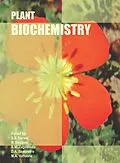Allelopathy is a new field of science, as the term ''Allelopathy'' was coined in 1937. However researchers are not using the Standard methods, due to lack of compendium on the Techniques, hence, the results obtained are not easily comparable with each other. Therefore, to make available the Standard methods for conducting allelopathy research independently, this multi-volume book has been planned. Since allelopathy is multi-disciplinary area of research, hence, volumes have been planned for each discipline. Understanding of allelopathic phenomenon and the effect of allelochemicals on receptor plants requires an interdisciplinary approach. The effects of allelochemical action can be detected at different levels of plant organization: molecular, structural, biochemical, physiological and ecological. This book has been written to provide information about all aspects of Plant Biochemistry. It is divided in 3 sections: Section I. Preparation of Plant Materials, has 1 chapter (Extraction and processing of plant material for biochemical assays). Section II. Biochemical Assays, consists of 17 chapters (Amino acids, Proteins, Enzymes, Carbohydrates, Lipids, Nucleic acids, Phenolic compounds, Polyphenols and lignin's, Terpenoids, Amines, Alkaloids, Cyanogenic compounds, Reactive oxygen species, Antioxidant capacity, Enzymatic antioxidant system, Adenine pyridine nucleotides, Plant Hormones). Section III. Metabolic Processes, has 5 chapters (Brassinosteroids, Photosynthesis, Glycolisis and energy related pathways, Respiration, Nitrate assimilation). Section IV. Appendices (Abbreviations, Chemical formulae and molecular weight of solvents and reagents).This book will serve as ready reference in laboratory/greenhouse/field studies and in class room. It will help to solve many problems of Plant Biochemistry. It will be useful for UG and PG students pursuing allelopathic research in laboratory, greenhouse and field studies and to Biologists and Ecologists. The users of this book can select suitable methods, according to the available facilities.
Autorentext
Prof. S.S. Narwal is an internationally renowned Allelopathy Scientist. He is the First National Fellow (Allelopathy) of Indian Council of Agricultural Research, New Delhi, from 19952005. Currently, he is the President of Indian Society of Allelopathy and the Chief Editor of Allelopathy Journal. Till now, he has authored/edited 18 books on Allelopathy and many books are under preparation.He has traveled to more than 35 countries in all the Six-Continents to deliver lectures in International Allelopathy Conferences. In 1989, when he was Visiting Professor, Department of Allelopathy, Ukrainian Academy of Sciences, Kiev, he attended All Soviet Allelopathy Conference and also read Allelopathy Reprints from Prof. A.M. Grodzinsky's Collection. Prof. Narwal established Indian Society of Allelopathy in 1990. Praising him Prof. E.L. Rice, USA, wrote 'Congratulations, Prof. Narwal for Establishing the First National Society in the World'. He has also organized four International Allelopathy Conferences in India, 1992 (Hisar), 1994 (New Delhi), 1998 (Dharwad) and 2004 (Hisar). He also founded International Allelopathy Society (1994) during the II International Allelopathy Conference, New Delhi.
Renata Bogatek is Professor in Plant Physiology at Warsaw University of Life Sciences (Poland). She completed PhD in 1986 and Dr. Sci. (Doctor Habilitatus) in 2006 (Plant Physiology and Biochemistry). She is an internationally recognized specialist of physiology and biochemistry of seeds. Her main research interests are on the hormonal regulation of seed dormancy and germination, as well as responses of plants to abiotic and biotic stresses. She is actively working on physiological and molecular basis of allelopathy. She closely collaborates with French scientific laboratory of University M. and P. Curie, Paris 6 (Laboratory of Applied Plant Physiology). She has 20 years of teaching experience in plant physiology and biochemistry at University of Warsaw and University Paris 6. She is a member of the Editorial Board of International Journal - Acta Physiologiae Plantarum as well as a member of the Federation of European Plant Biology Societies - FEPBS, International Society for Seed Science ISSS (2001-2005, regional representative for Central Europe), International Allelopathy Society IAS (since 2005, regional representative for Central Europe).
